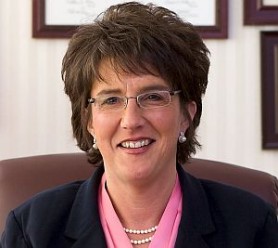 U.S. Representatives Jackie Walorski (R-Ind.) and Annie Kuster (D-N.H.) this week reintroduced bipartisan legislation to help survivors of military sexual trauma (MST) access treatment through the Department of Veterans Affairs (VA). The bill, H.R. 927, makes MST survivors eligible for benefits to cover expenses when they need to travel long distances to receive treatment.
U.S. Representatives Jackie Walorski (R-Ind.) and Annie Kuster (D-N.H.) this week reintroduced bipartisan legislation to help survivors of military sexual trauma (MST) access treatment through the Department of Veterans Affairs (VA). The bill, H.R. 927, makes MST survivors eligible for benefits to cover expenses when they need to travel long distances to receive treatment.
“There is no excuse for putting up barriers to treatment for survivors of military sexual trauma,” Congresswoman Walorski said. “We have a responsibility to ensure our veterans get the care and services they earned. This bipartisan bill will help survivors get the care they need to overcome physical and psychological pain from military sexual trauma, regardless of their geographic location or their distance from VA facilities.”
“The men and women who have served our nation in uniform deserve nothing short of the best care and access to health services possible,” Congresswoman Kuster said. “That commitment extends to the thousands of veterans who suffered trauma as a result of sexual assault while in service. The issue of military sexual assault is well documented and it’s critical that those who have been impacted are able to access the services they need. This important legislation would ensure that veterans seeking care for sexual assault are able to receive reimbursement for their travel as they would with any other service related care.”
BACKGROUND
The crisis of servicemembers experiencing sexual assault and harassment remains a serious problem in the military. The Department of Defense estimates there were approximately 19,000 cases of unwanted sexual contact among servicemembers in 2014.
The VA provides counseling, health care services, and other treatment to veterans who experienced MST. However, many survivors must travel long distances to receive treatment but are unable to obtain travel benefits to access the care they need. H.R. 927 allows veterans to be reimbursed for travel outside their Veterans Integrated Service Network (VISN) when seeking treatment related to MST.
A 2012 VA Office of Inspector General (OIG) report found the VA’s Beneficiary Travel policy does not align with its MST treatment policy, under which MST patients are referred to programs that are clinically indicated regardless of geographic location. Veterans with MST are often admitted to programs outside their VISN, but obtaining authorization for travel funding is frequently cited as a problem.
Walorski represents the 2nd Congressional District of Indiana, serving as a member of the House Ways and Means Committee.
Kuster represents the 2nd Congressional District of New Hampshire, serving as a member of the House Veterans’ Affairs Committee, where she is the ranking member on the Oversight and Investigations Subcommittee, and the House Agriculture Committee.














